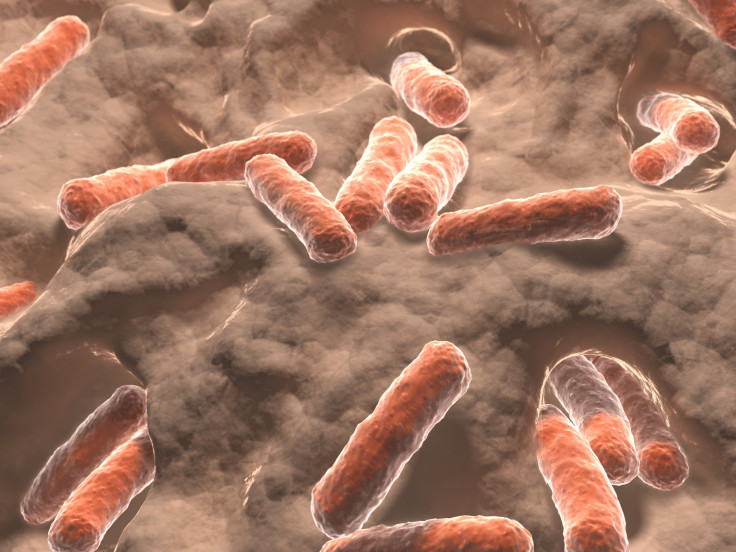Imbalances In Our Gut Flora Contribute To The Obesity Epidemic: How Do We Fix This?

We’ve known for a long time that the gut microbiome influences a vast array of bodily functions — it maintains proper immunity, for example. More recently, gut microbes have demonstrated an integral role in many facets of brain function, and they also profoundly influence body weight. How? Gut microbes regulate insulin, and control appetite and metabolism, and more.
Let’s consider how we’ve disrupted our gut flora, and the strength of evidence showing how we’ve transformed our once-thriving inner ecosystem into a polluted pond of fat-favoring microbes.
Investigators first discovered that an imbalanced gut flora could lead to obesity in animals. In genetically engineered obese mice, scientists found a class of gut microbes called Firmicutes was consistently overrepresented. They discovered that the Firmicutes are too efficient at extracting energy from food, breaking down fiber and even increasing the absorption of dietary fat. In this way, gut microbes could cause retention of body weight without the animal eating an extra morsel of food.
Investigators were also able to transfer obesity to germ-free mice via fecal transplantation from obese mouse donors, and even modify the expression of obesity via diet.
A Western high-fat, sugary diet facilitates the colonization of obesogenic flora. Again in mice, research teams were able to show that consuming a Western diet not only led to obesity, but that it also transformed the gut flora into an obesogenic mix in as little as 24 hours.
Naturally, what ensued were studies in humans to see if the same rules applied; obesity being associated with a dominance of Firmicutes and a less biodiverse ecosystem. They started by transplanting fecal material from obese humans to germ-free mice, which again resulted in obesity. Stool infusion from healthy-weight individuals into germ-free mice resulted in the opposite — mice grew to normal size and body weight. Other studies show fiber-rich diets improve the gut microbiome while Western diets worsen them.
In the world of medicine, we often refer to a specific microbe as fulfilling Koch’s postulates when it’s considered a causative agent to a disease. Although gut microbes are too numerous to lay blame on one single gut bug, the idea of transferring obesity across organisms is revolutionary.
There are numerous studies, and even meta-analyses, showing that obese humans have a Firmicute-dominant gut flora — not as clean as in genetically engineered mice but the biodiversity of the gut ecosystem is certainly reduced. This diminished biodiversity in the gut’s ecology translates into a loss of functionality among bacteria that normally provide support to the flora, and maintain proper physiology.

Aside from breaking down fiber faster and absorbing more fat, how else can an imbalance in gut microbes cause weight gain? There are many ways, but the two overarching mechanisms are gut-derived inflammation and control of appetite and satiation.
The unbalanced mix of gut microbes no longer represents a well-diversified ecosystem that regulates immunity. Rather, it fosters inflammation and the loosening of the tight junctions that hold together the cells in the intestinal lining. This causes bacterial toxins to seep out into the body, where they act on our genes, promoting an unhealthy inflammatory response. This results in a number of biochemical events that foster fat accumulation, hyperglycemia, insulin resistance, and more. Gut microbes also regulate hormones produced in the intestines, which control our appetite, influence how full we feel after meals, and even regulate blood glucose and insulin levels.
What are the principal culprits that drive these imbalances in our gut flora and lead to ill health and weight problems?
Diet. Many people are asking about why we’re becoming fatter as a nation. Yes, too many refined foods are a factor. As reported by the USDA, one-third of the increased calories consumed between 1970 and 2000 were from refined grains and sugars. However, a study from Stanford University that utilized data from the National Health and Nutrition Examination Survey between 1988 and 2010 reported no evidence of higher caloric intake over that period of time. Numerous studies provide compelling evidence that consuming a diet high in fat and refined carbs, and low in fiber, disrupts the gut ecology and favors fat accumulation and obesity. Our diet is loaded with refined sugars and grains and saturated fats while containing minimal amounts of fiber, decaying the health of the gut microbiome.
Antibiotics. We as a nation are clearly overusing antibiotics, and much of it is surreptitious. More troubling are the numerous studies showing how the overprescription of antibiotics in children reduces proper immune development by lowering the biodiversity of the gut microbiome. Exposure to antibiotics early in life also predisposes a child to obesity and other diseases later in life. Antibiotic levels in conventionally raised livestock may contribute to obesity by reducing the biodiversity of our gut microbiome. This should not be a revelation, as antibiotics have long been known to make livestock fat so why not humans? There is excellent experimental data to support this.
As a result of diet, antibiotics, and other factors, the gut’s microbial mix becomes a polluted cesspool rather than a thriving garden. So how do you enhance the biodiversity of your microbiome?
First, restrict your and your children’s exposure to antibiotics — use them only when absolutely necessary. Consider eating meats from livestock that are raised without antibiotics. There are several commercial entities that are now offering chicken raised this way.
Second, choose wholesome foods that help grow a biodiverse gut microbiome. A few examples are asparagus, artichoke, beans, garlic, root vegetables, and other foods rich in fiber. Fermented foods containing live bacteria also bolster the friendly gut bacteria.
This revolutionary new information about the gut microbiome is an opportunity to mend our patient’s health, promote well-being and stem the tide of obesity.
To your good health,
Dr. Gerry Mullin
Gerard E. Mullin, MD, a leading gastroenterologist and nutritionist, is associate professor of medicine at The Johns Hopkins University. He is the author of 'The Gut Balance Revolution' and he lives in Baltimore, MD.



























